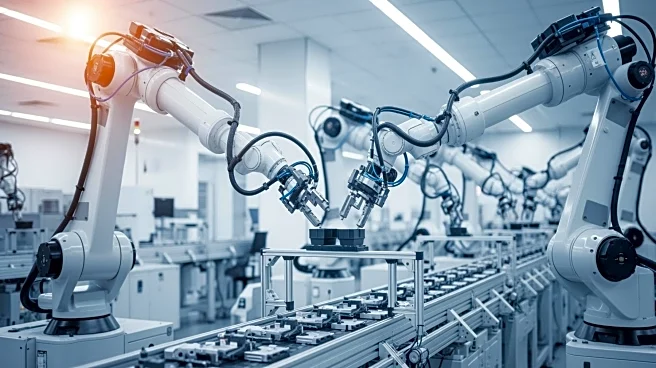What's Happening?
Nestlé, the world's largest food company, has announced plans to cut approximately 16,000 jobs globally over the next two years. This decision is part of an effort to enhance operational efficiency, including
through automation and shared services. The majority of the layoffs, around 12,000, will affect white-collar professionals, while 4,000 roles will be reduced in manufacturing and supply chain operations. The job cuts represent nearly 6% of Nestlé's workforce. CEO Philipp Navratil emphasized the need for Nestlé to adapt quickly to changing global conditions, including the rise of artificial intelligence, which has sparked concerns about job losses across various industries. Nestlé's organic sales rose by 4.3% in the third quarter, and the company remains committed to investing despite macroeconomic uncertainties.
Why It's Important?
The announcement of job cuts at Nestlé underscores the growing impact of automation and artificial intelligence on employment in the food industry. As Nestlé seeks to improve productivity and reduce costs, the move reflects broader trends in the global economy where companies are increasingly leveraging technology to streamline operations. While this may enhance Nestlé's competitiveness and profitability, it raises concerns about job security for employees, particularly in the U.S., which is Nestlé's largest market. The decision also highlights the challenges faced by traditional industries in adapting to technological advancements and changing consumer behaviors. The focus on operational efficiency and innovation is crucial for Nestlé to maintain its market position and drive future growth.
What's Next?
Nestlé's strategic focus on automation and efficiency is expected to continue shaping its business operations. The company plans to invest in high-potential areas and maintain its commitment to growth despite economic uncertainties. As Nestlé implements these changes, stakeholders will be watching closely to assess the impact on the company's performance and market dynamics. The broader implications for the food industry, particularly in terms of employment and technological integration, will be significant as Nestlé navigates this transition. The company's ability to balance cost savings with innovation and market expansion will be critical in determining its long-term success.











